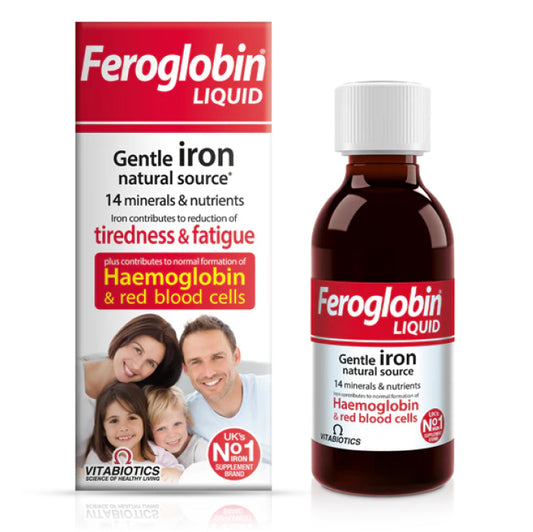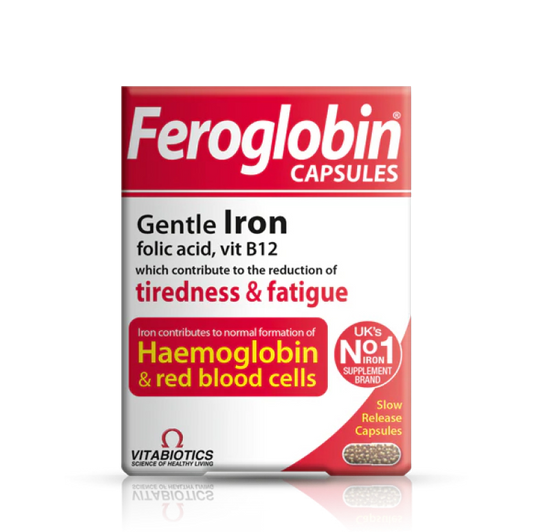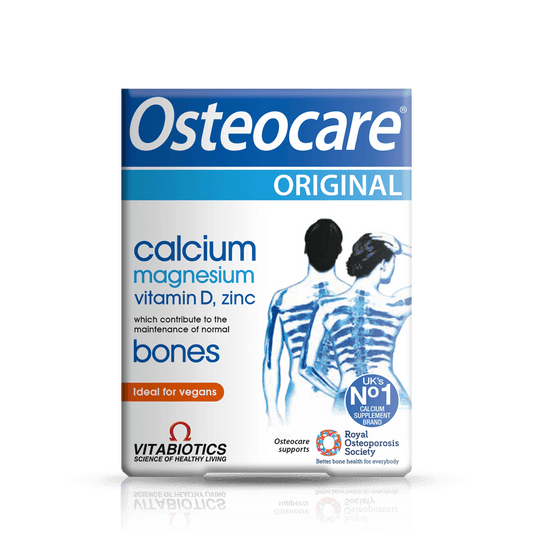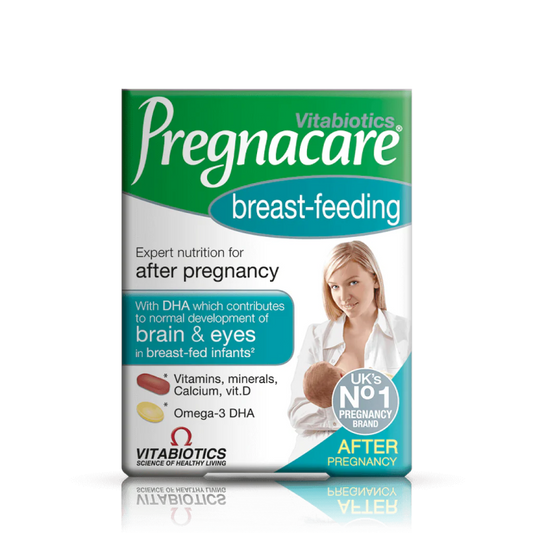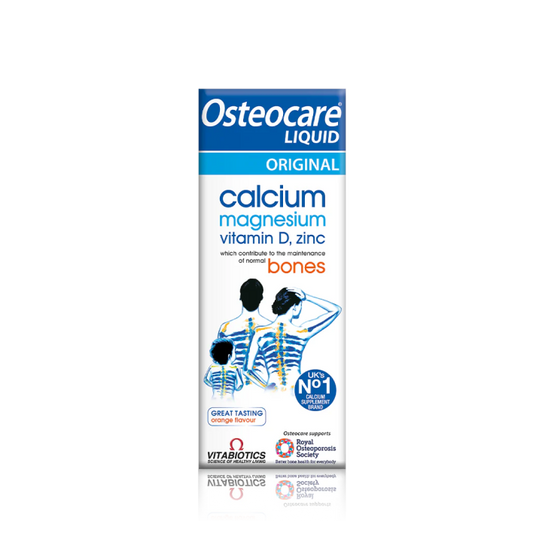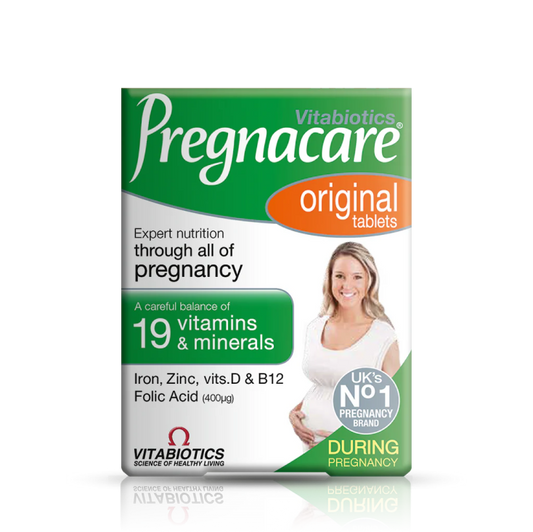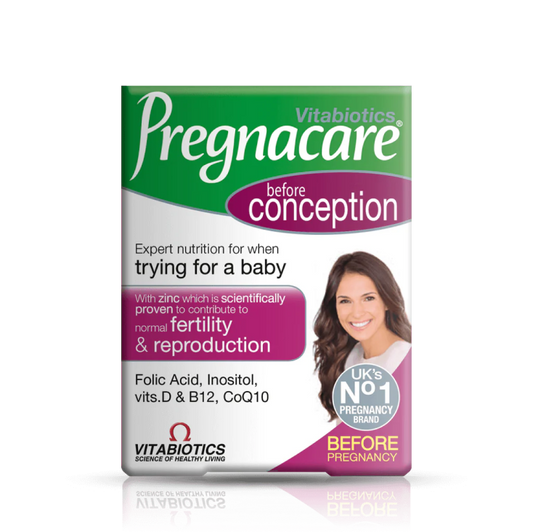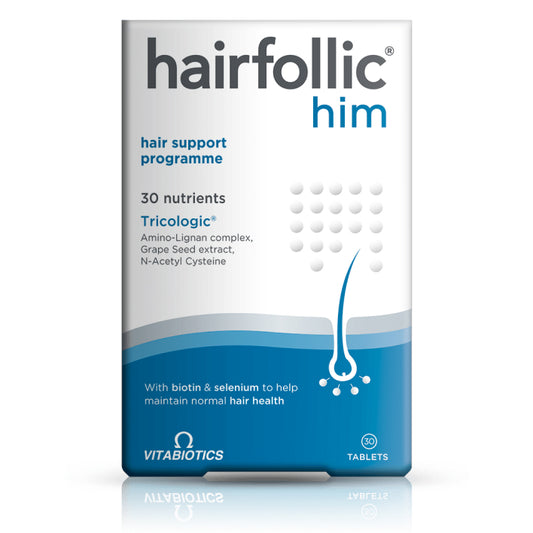Vitamin C, also known as ascorbic acid, is incredibly popular and well-regarded as a key nutrient supporting our health and beauty. This versatile compound has many important functions in the body, from boosting immunity to improving the condition of the skin. As a powerful antioxidant, vitamin C protects our cells from the harmful effects of free radicals, helping to slow down the aging process. In this article, we will take a closer look at the many benefits of vitamin C, discover its natural sources, establish recommended doses, discuss the symptoms of deficiency and excess, explore its role in skin care, and share interesting facts and the latest scientific discoveries about it.
Why is vitamin C so important?
Vitamin C plays an irreplaceable role in maintaining our health on many levels. Its numerous properties make it essential for the proper functioning of the entire body.
Strong antioxidant
Vitamin C is one of the most effective natural antioxidants , protecting our cells from free radical damage and oxidative stress. It works by neutralizing unstable molecules that can contribute to the development of many chronic diseases and accelerate the aging process. What’s more, vitamin C supports the regeneration of another important antioxidant vitamin, vitamin E. This interaction suggests that an adequate intake of vitamin C may indirectly enhance the body’s overall antioxidant defenses by ensuring that there are enough of both vitamins to fight cellular damage.
Support for the immune system
Vitamin C is widely known for its positive effects on the immune system . It supports its function by increasing the activity of white blood cells, which are key to fighting infections, and by limiting the replication of viruses. Studies also suggest that regular consumption of vitamin C can shorten the duration and alleviate the symptoms of colds. Although it is not a cure for the cold, vitamin C appears to play a supporting role in the body's immune response , potentially reducing the severity of common infections.
Collagen synthesis
Vitamin C is essential for the production of collagen, a structural protein that forms the foundation of our skin, bones, cartilage, tendons, ligaments and blood vessels. It plays a key role in the healing process of wounds and in maintaining the elasticity and firmness of the skin. Vitamin C's involvement in collagen synthesis is important not only for the health of the skin, but also for the integrity of various connective tissues throughout the body. Sufficient vitamin C is therefore crucial for the health and regeneration of these diverse tissues.
Heart and blood vessel health
Studies suggest that vitamin C may help improve the health of your heart and blood vessels by lowering blood pressure and bad cholesterol, and by preventing the development of atherosclerosis. Vitamin C also helps maintain the integrity of your blood vessels. Evidence suggests that vitamin C plays a protective role in cardiovascular health, potentially reducing the risk of common heart problems.
Brain and nervous system functions
Vitamin C also has an impact on the functioning of the brain and nervous system . It is involved in the synthesis of neurotransmitters, which are necessary for transmitting signals between nerve cells. It may also have an impact on mood and cognitive function, and plays a role in neuromodulation and the transmission of nerve signals. The effects of vitamin C extend to neurological processes, suggesting a potential link between its levels and mental well-being and cognitive performance.
Better iron absorption
Vitamin C facilitates the absorption of iron from food , which is especially important in preventing iron deficiency anemia. Eating foods rich in vitamin C with meals containing iron, especially plant sources of iron, can significantly improve its absorption.
Other potential benefits
In addition to these benefits, there are reports suggesting that vitamin C may have anti-cancer properties, having demonstrated cytotoxic effects on cancer cells in the laboratory. Vitamin C also plays a role in bone health and may prevent osteoporosis . It also has anti-inflammatory effects. It may also benefit athletes by reducing the risk of colds and aiding recovery. There is also evidence of its potential role in regulating sugar and lipid levels in people with type 2 diabetes.
Where is most vitamin C found?
To ensure an adequate supply of vitamin C, it is worth including a variety of fruits and vegetables in your diet, which are a rich source of it.
Fruit
The richest natural source of vitamin C is the wild rose . It is also characterized by a high content blackcurrant and acerola. Popular citrus fruits such as oranges, lemons, grapefruits and kiwi are also good sources of vitamin C, although they are not the richest, as is commonly believed. Strawberries and other fruits such as guava, papaya, cantaloupe and mango are also worth reaching for.
Vegetables
Among vegetables, the best sources of vitamin C include red and yellow peppers , parsley, broccoli, Brussels sprouts, cauliflower, and kale . It is also worth including spinach, tomatoes, although they contain less of it compared to other vegetables, and cabbage.
See also: Balanced diet for women
Other sources
An additional source of vitamin C are fermented foods , such as sauerkraut. The fermentation process increases the bioavailability of ascorbic acid in cabbage. It is also worth mentioning rosehip oil.
The table below shows examples of vitamin C content in selected products:
|
Product |
Vitamin C content per 100g (mg) |
|
Briar |
30-1300 |
|
Blackcurrant |
120-190 |
|
Acerola |
820-4023 |
|
Red pepper |
190 |
|
Parsley |
177.7 |
|
Broccoli |
132 |
|
Brussels sprouts |
75 |
|
Strawberries |
85 |
|
Kiwi |
84 |
|
Oranges |
30-50 |
What is the daily requirement for vitamin C, depending on age groups?
Vitamin C requirements vary depending on age, gender and health.
Kids
- Infants (0-11 months): 20 mg/day
- Children (1-3 years): 40 mg/day
- Children (4-12 years): 50 mg/day Girls (13-18 years): 65 mg/day
- Boys (13-18 years): 75 mg/day
Adults
- Women: 75 mg/day
- Men: 90 mg/day
There is a noticeable difference in the basic recommended daily intake for adult men and women. Men generally need slightly more vitamin C to maintain basic health functions. The general recommendation for healthy adults is 200-250 mg/day, preferably in conjunction with diet. This is considered optimal for most people.
Pregnancy and breastfeeding
- Pregnant women (<19 years): 80 mg/day
- Pregnant women (>19 years): 85 mg/day
- Breastfeeding women: 115-120 mg/day
Pregnancy and breastfeeding significantly increase the need for vitamin C, highlighting its crucial role in fetal development and infant health.
Smokers
Smokers should take an additional 35 mg of vitamin C per day. Smoking has a significant impact on the level of vitamin C in the body, so it is necessary to increase its intake to compensate for its faster decomposition.
Increased demand
In some situations, such as infections, stress, intense physical exertion, hypertension, diabetes, cancer, and convalescence, the need for vitamin C may increase and doses of 500-1000 mg/day may be beneficial. In such cases, it is recommended to consult a doctor to establish individual recommendations.
Upper limit of consumption
Please note that daily intake of vitamin C should generally not exceed 1000 mg to avoid potential side effects.
Symptoms and effects of deficiency to watch out for
Vitamin C deficiency can lead to a variety of symptoms that can affect your overall well-being and health.
Early symptoms
Early symptoms of vitamin C deficiency include general weakness and fatigue, increased susceptibility to infections, irritability and mood changes, and muscle and joint pain.
More serious symptoms
As the deficiency progresses, more serious symptoms may appear, such as bleeding gums and nose, easy bruising, difficulty healing wounds, skin changes (dry, rough skin, loss of colour), hair loss, dental problems (loose teeth, tooth decay), joint swelling and pain, and anemia due to impaired iron absorption.
Scurvy
The most advanced form of vitamin C deficiency is scurvy, which is now rare in developed countries. Its main symptoms include spontaneous bleeding, muscle and joint pain, anemia, weakened teeth, and delayed wound healing.
Long-term effects of deficiency
Long-term insufficient levels of vitamin C can have serious and far-reaching consequences for various systems in the body, increasing the risk of chronic diseases such as cancer, cardiovascular disease (atherosclerosis, hypertension), thyroid disorders, osteoporosis and high cholesterol .
Potential Risks and Side Effects of Too Much Vitamin C
Vitamin C is water-soluble, and excess is usually excreted in the urine, making overdosing from food alone unlikely. However, taking very high doses of supplements can lead to some side effects.
Overall low toxicity
Vitamin C is generally of low toxicity.
Side effects of high doses (above 1000 mg/day)
Taking high doses of vitamin C (over 1,000 mg per day) can cause digestive problems such as abdominal pain, nausea, vomiting, diarrhea, flatulence, and heartburn. In susceptible individuals, it can also increase the risk of kidney stone formation due to increased oxalate production. Skin rash may also occur. There is a potential risk of increased iron absorption, which can be problematic for people with hemochromatosis.
You should also be aware of possible interactions with certain medications, such as tricyclic antidepressants, phenothiazines, aminoglycoside antibiotics, oral contraceptives, acetaminophen, nonsteroidal anti-inflammatory drugs (NSAIDs), and anticoagulants. It is therefore important to consult your doctor if you are taking any medications. High doses of vitamin C can also affect the results of some medical tests, such as fecal occult blood tests and creatinine and uric acid levels.
How to supplement vitamin C?
There are many different forms of vitamin C supplements available on the market, allowing you to choose the most appropriate option depending on your individual needs and preferences.
Popular forms of vitamin C
Popular forms of vitamin C supplements include tablets, capsules, powder, effervescent tablets (convenient and potentially more absorbable), lozenges/pastils (good for children), drops (suitable for infants and toddlers), jellies, syrups, and liposomal vitamin C (with potentially increased absorption).
Chemical forms
The most common and biologically active form is L-ascorbic acid. Mineral ascorbates (sodium ascorbate, calcium ascorbate, etc.) are also available, which may be gentler on the stomach. Ascorbyl palmitate and ascorbyl glucoside are often used in cosmetics.
Natural vs. Synthetic Vitamin C
The body generally does not distinguish between natural and synthetic vitamin C.
Combination supplements
It is worth paying attention to supplements that combine vitamin C with other beneficial ingredients, such as zinc, collagen, vitamin E or bioflavonoids.
How to choose the best supplement?
When choosing a vitamin C supplement, it is important to consider individual needs and preferences (e.g., ease of swallowing, taste). Check the dosage and purity of the product. For children, choose age-appropriate formulas. People with sensitive stomachs may prefer buffered forms. The variety of vitamin C supplements available allows consumers to choose the form that best meets their individual needs and preferences, whether it is ease of consumption, specific health goals, or tolerance.
This may be useful to you: Ultra Vitamin C - vitamin C and bioflavonoids
The Role of Vitamin C in Skin Care
Vitamin C is a valued skin care ingredient that offers many benefits.
Antioxidant properties
It protects the skin against free radicals and environmental damage, slowing down the aging process.
Collagen synthesis
Stimulates collagen production, improving skin firmness and elasticity.
Brightening effects
Helps even out skin tone and reduce discoloration, dark spots and acne marks.
Strengthens blood vessels
Beneficial for vascular skin, reduces redness and spider veins.
Anti-inflammatory properties
It can help soothe irritated and sensitive skin and aid in the treatment of acne.
Forms of vitamin C in cosmetics
Various forms of vitamin C are used in cosmetics:
- L-Ascorbic Acid - Strong, but can be unstable and irritating
- Ascorbyl Glucoside - more stable and less irritating
- 3-O ethyl ascorbic acid - very stable and well penetrating
- Magnesium ascorbyl phosphate (MAP) and sodium ascorbyl phosphate (SAP) - milder forms, suitable for sensitive skin
- Ascorbyl Palmitate - more stable but less potent
Cosmetic products containing vitamin C
Vitamin C can be found in many cosmetic products such as serums, creams, masks, cleansing gels, toners, body lotions and sunscreens.
Tips for Using Vitamin C in Skin Care
It is recommended to start with a low concentration and gradually increase. Sunscreen should be used daily, as vitamin C can increase skin sensitivity to the sun. Products should be stored in dark, airtight containers to prevent oxidation. Be careful when combining with certain ingredients, such as retinol or niacinamide.
Stable forms of vitamin C are generally better to combine with niacinamide. Serums should be applied to dry skin for better absorption. Vitamin C is a powerful ingredient in skincare, offering a variety of benefits, from anti-aging to brightening. Understanding the different forms and how to use them effectively is key to maximizing its potential.
Interesting facts and current research on vitamin C
Vitamin C is also known as ascorbic acid , and its deficiency causes scurvy . Unlike most animals, humans cannot produce vitamin C on their own. The name "ascorbic" comes from its antiscorbutic (scurvy-preventing) properties. Vitamin C is sensitive to heat, light, and oxygen , so cooking can reduce its content in foods. An exception is bell peppers, which retain vitamin C even when cooked.
The highest concentrations of vitamin C in the body are found in white blood cells, the pituitary gland, the adrenal glands, and the brain. "L-ascorbic acid" is the biologically active form; the term "left-handed vitamin C" is a marketing myth. Synthetic vitamin C is chemically identical to natural vitamin C. Rosehips and acerola are among the richest natural sources, surpassing citrus fruits. Vitamin C plays a role in the biosynthesis of collagen and neurotransmitters. Current research continues to explore its role in a variety of health conditions, including cancer, cardiovascular disease, and neurodegenerative disorders. Studies suggest that vitamin C may benefit athletes by reducing the risk of colds.
Vitamin C may increase the absorption of non-heme iron (iron from plant foods). Some studies suggest that vitamin C may have a positive effect on mood and reduce anxiety. Vitamin C has a rich history and continues to be the subject of scientific research. Debunking myths and highlighting ongoing research adds depth and credibility to this article.
Vitamin C Information Summary
Vitamin C is an extremely important nutrient that plays a key role in maintaining our health and beauty. Its numerous benefits, from strengthening immunity and collagen synthesis to antioxidant action and cardiovascular support, make it an essential part of our daily diet. We encourage you to take care of an adequate supply of vitamin C through a balanced diet rich in fruits and vegetables.
In cases of insufficient dietary intake, supplementation may be beneficial, but it is important to remember the recommended doses and potential risks associated with overconsumption. Vitamin C is a versatile ingredient that supports our health on many levels, from immunity to skin condition. Let's remember its importance for a healthy lifestyle.


